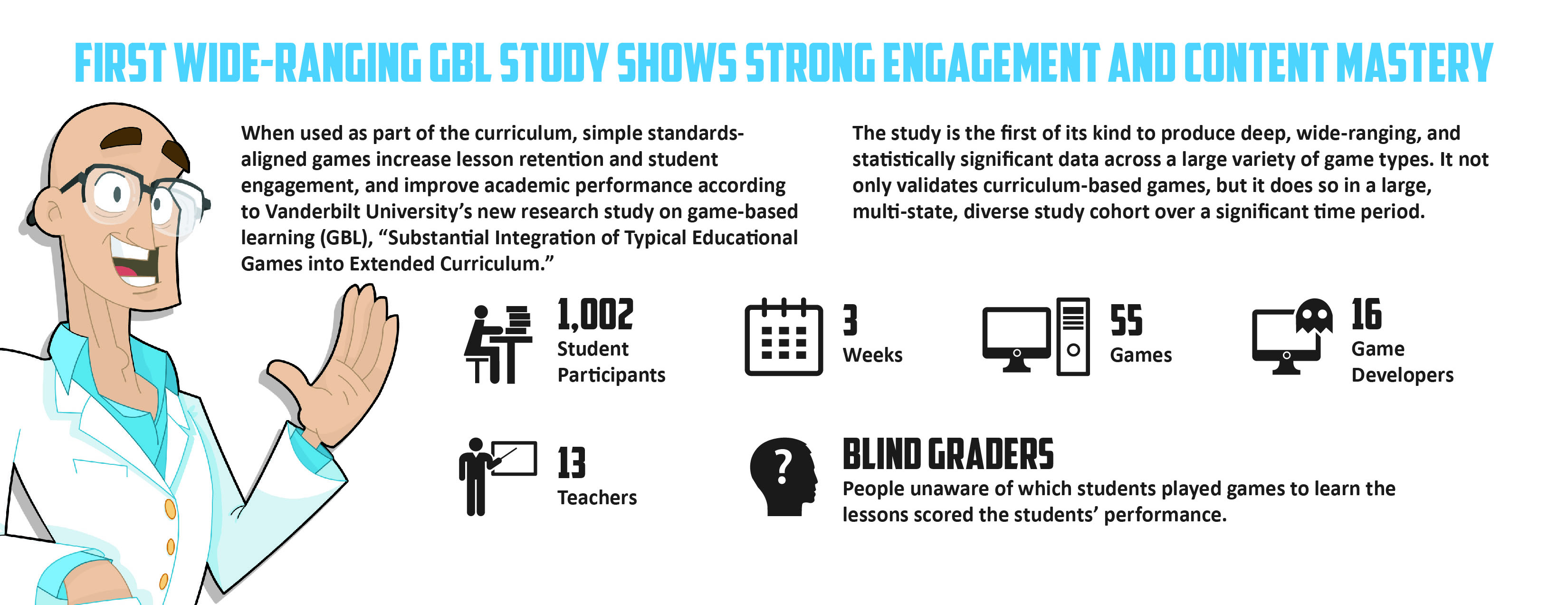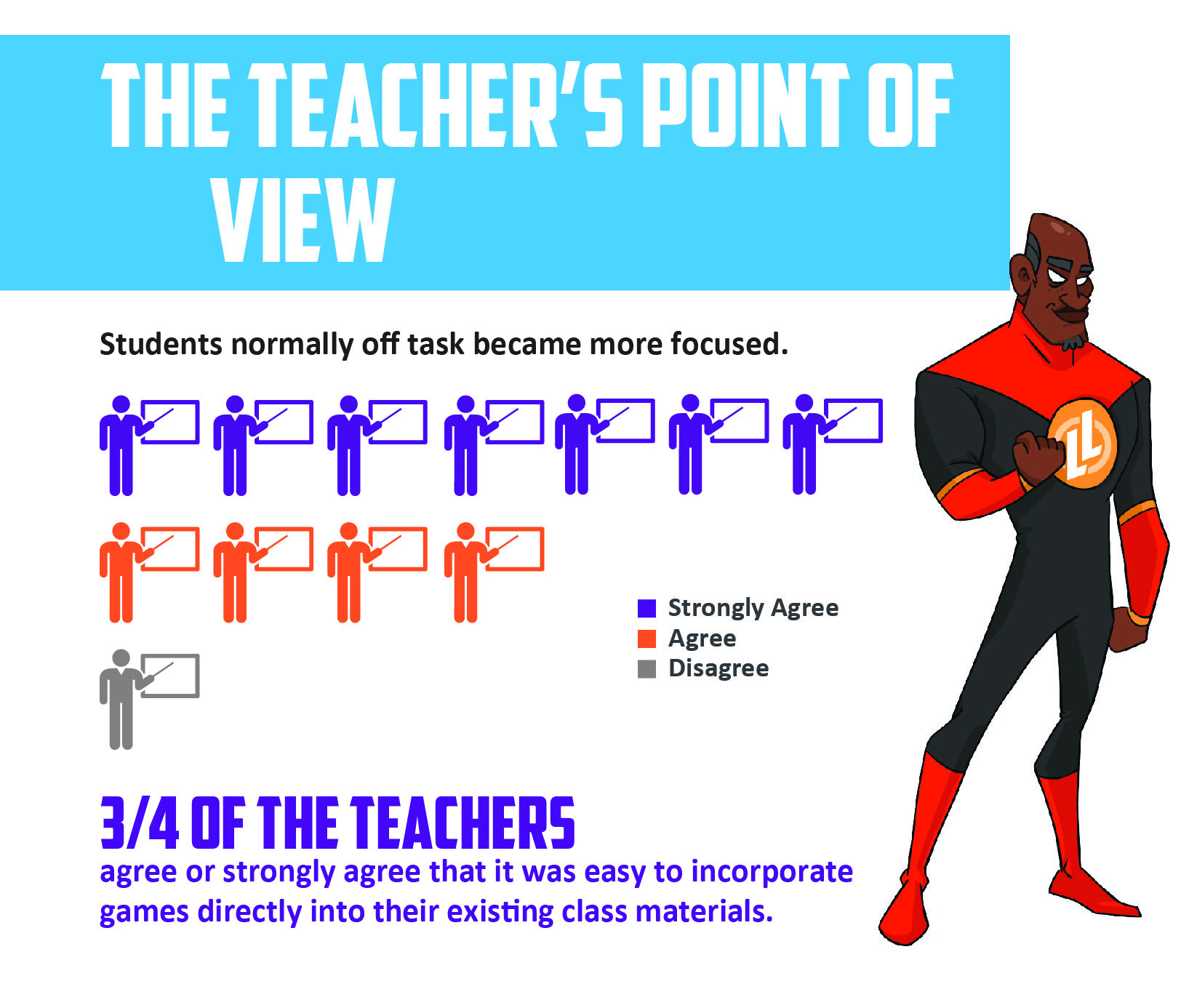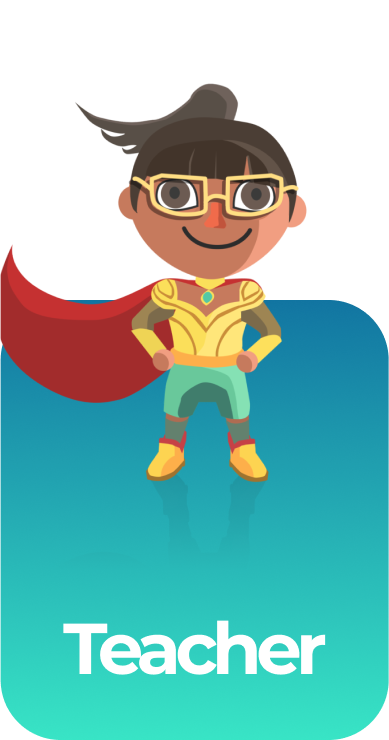Study: Students Win When Teachers Deploy Learning Games
Earlier this morning, Legends of Learning issued a press release about the Vanderbilt University study “Substantial Integration of Typical Educational Games into Extended Curricula.” The following is a version of this research.

In the largest study of its kind, researchers found students boosted their test scores by the equivalent of over half a letter grade in three weeks when their teachers used digital games in the classroom. The new research, published by Journal of the Learning Sciences, demonstrates the benefits of game-based learning for students when compared to students who had no access to such games.
“Substantial Integration of Typical Educational Games into Extended Curricula,” was co-authored by researchers at Vanderbilt University and involved more than 1,000 students of 13 teachers in 10 diverse urban, suburban and rural schools in seven states (get the executive summary here). The educators integrated a standards-aligned set of 55 typical educational games into their curricula. Each teacher taught at least one class with the games and one class without.
The research found students in the classes with the games outperformed their peers on essay and multiple choice questions. It also found:
- Engagement increased. Teachers reported dramatic increases in engagement among students who learned with the games.
- Teachers enthused. Ninety-two percent of teachers who used the education games said they would like to use similar games again because of the impact on student performance and engagement.
Researcher and co-author Douglas Clark, professor, Vanderbilt University’s College of Education and Human Development, says, “The results highlight the potential of digital games for enhancing instruction, particularly in light of the teachers strongly positive experiences and interest in continuing to use games like these in the future. This study is important because it is based on data collected with a large set of games used by teachers in extended curricula across multiple school districts.”
Two of his co-authors, Dr. Vadim Polikov, a research scientist, and Aryah Fradkin, a former teacher, tapped into the results to launch Legends of Learning. The online platform is now home to thousands of curriculum-based education games and assessment items for middle school earth and space science, life sciences and physical science curricula. Teachers across the U.S. are using the same kind of standards-aligned games validated by the study to raise engagement and test scores. The games are available via the Legends of Learning site.
Dr. Polikov is presenting the findings next week at the International Society for Technology in Education (ISTE) Conference in San Antonio, Texas, on Monday, June 26. Legends of Learning will demonstrate its games and platform live at ISTE at booth 2632.
Some highlights from the Legends of Learning platform include:
- Short games (5–25 minutes) that align to middle school science curriculum standards to ensure content engages and helps students succeed in their studies
- An intuitive platform similar to Netflix and Amazon that makes games easy and natural to use in classrooms
- A dashboard that allows teachers to observe student comprehension in real time, create game playlists for classes and individual students, and assess content mastery
- A feedback loop that rewards game developers based on ratings given to their games by teachers and students, which allows the best games to rise to the top
The study was published in The Journal of the Learning Sciences (JLS), one of the top peer-reviewed academic journals for research on education and learning. JLS is ranked in the top 3 percent (5th out of 230) of all scholarly educational research journals as rated by Thomson Reuters, Journal Citation Reports®.



